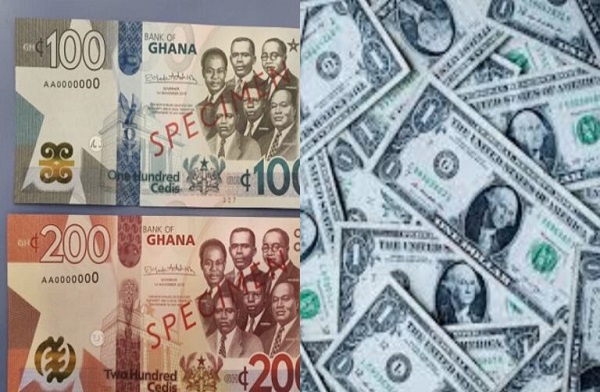
In the first quarter of 2025, the Ghana Cedi lost 5.3% of its value in relation to the US dollar. The Bank of Ghana’s Summary of Economic and Financial Data for the month ending March 2025 supports this.
The sustained pressure on the exchange rate was reflected in the cedi’s losses, which were especially noticeable in January (5.3%) and February (3.9%).
The cedi fell 9.2% against the euro, ending the quarter at GH¢16.75. By the end of March, it was trading at GH¢20.03 per pound, down 8.2% against the British pound.
The local currency did, however, appreciate 0.31% week over week in the retail market last week, reaching GH¢15.90 per dollar at the mid-rate.
Its year-to-date loss has decreased to 2.36% thanks to this development.
Dr. Johnson Asiama, the governor of the Bank of Ghana, announced a series of steps to stabilize the Ghanaian cedi during a recent news conference for the 123rd Monetary Policy Meetings. The cedi is still under pressure from major foreign currencies.
These include improving foreign exchange reserves, implementing structural changes to rectify exchange rate misalignment, and tightening monetary policy to control inflation.
In order to rebuild trust in the cedi, Dr. Asiama emphasized the necessity of structural reforms, inflation control, and monetary and fiscal coordination.
Despite the cedi depreciating 5.3% against the US dollar in Q1 2025, recent weeks have seen a slight recovery, with the local currency gaining 0.31% against the dollar in the retail market.
Analysts believe that clear policy direction and investor confidence will be crucial in determining the cedi’s trajectory in the coming months.



